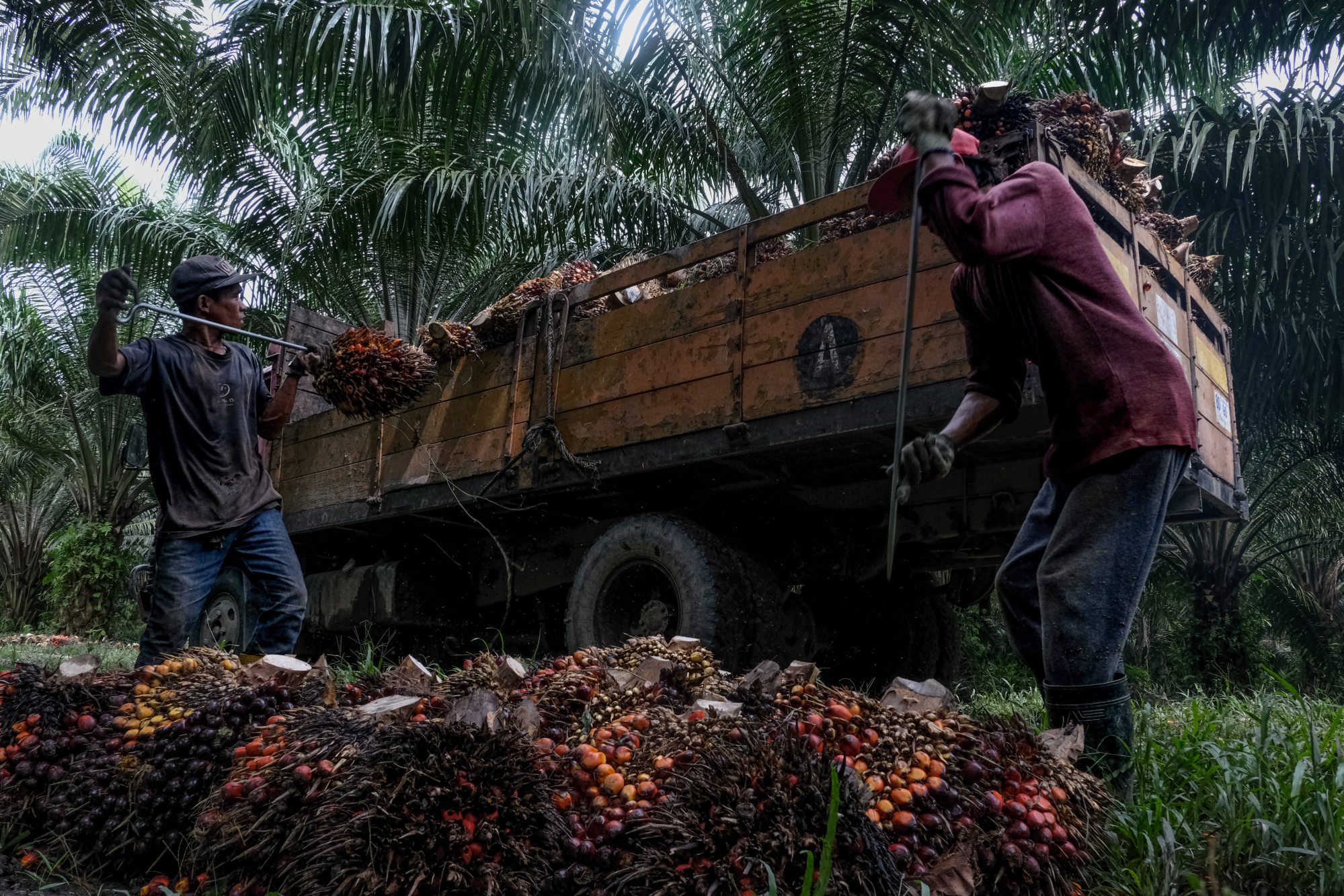“So we cannot call them plantation worker, we need to call them professional harvesters,” the minister said, adding that there needed to be a push to get local youth to “take pride” in palm oil harvesting.

His suggestion was widely panned by the public, with many pointing out that locals had been shying away from that sector because of the poor pay.
“The job title is not the issue, but the pay must be worth it,” said Facebook user Muhammad Farid.
Palm oil is the dominant cash crop of Malaysia, accounting for more than 70 per cent of its agricultural land and contributing 36 billion ringgit (US $7.6 billion) to the country’s gross domestic product.
Its palm oil export supplies 44 per cent of the world’s supply, second only to Indonesia.
The labour-intensive work has so far been on the back of almost half a million workers, with 80 per cent being migrants mainly from Indonesia, India, Nepal and Bangladesh.
Malaysia to slash migrant workforce amid vitriol, Bangladeshi job scam crisis
Malaysia to slash migrant workforce amid vitriol, Bangladeshi job scam crisis
Malaysia recently announced it would close its doors to migrant workers, saying there was already enough foreign labour in the country at 2.55 million workers, as it seeks to further wean away from foreign labour into the next decade.
This follows an increase in unease towards migrant workers, whom Malaysians see as competition during a continued economic slowdown.
The shortage in plantation workers, particularly after many of them left the country – or were sent home – during the Covid-19 pandemic, has forced the government to figure out ways to entice locals to go into a sector many perceive to be menial labour that is beneath the level for a Malaysian citizen.
Malaysian Palm Oil Certification Council (MPOCC) said the pandemic experience highlighted the extent of the industry’s dependence on foreign labour.
“Most of the foreign workers had worked with the estate for a long time, and they understood how the estate works,” said Amni Syazana Azahar from the MPOCC. “Without them on the estate, operations were interrupted.”
Even though there were vacancies with good wages, the applications were still very low, she said. This also showed that young workers nowadays could not tolerate the working environment in the palm oil plantations.
Malaysia firm probed for human trafficking after foreign workers found abandoned
Malaysia firm probed for human trafficking after foreign workers found abandoned
Sime Darby Plantation, the world’s largest palm oil plantation firm with more than 340,000 hectares of land in Malaysia, started paying employees upwards of 3,000 ringgit (US$638) per month since 2023, to entice local workers.
This is above Malaysia’s median monthly wage of 2,600 ringgit and the national minimum wage set at 1,500 ringgit.
The reliance on foreign labour previously led to human rights abuses and exploitation, including forced labour practices of debt bondage.
In 2020, the US Customs and Border Protection agency handed Sime Darby and Malaysia’s other major plantation FGV, alongside several other companies, a two-year import ban on the grounds of using forced labour.
The agency lifted its ban on Sime Darby in February last year, while FGV aims to get its restriction eased by the end of this year.

Economist Melati Nungsari at Asia School of Business, who co-wrote a paper on issues facing refugees and asylum-seekers in Southeast Asia, said the issue was not with the nature of the job, but with how employees were treated.
“No job is inherently ‘demeaning’ or ‘bad’, but the conditions that employers provide and enforce upon their employees are what makes them bad for workers,” Melati said.

